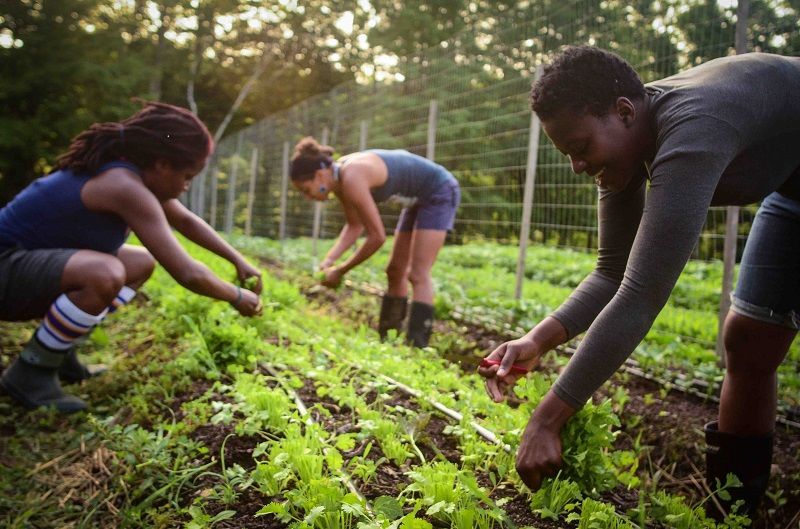
How Does the Baobab Value Chain Benefit Local Economies?
The Baobab tree, often referred to as the “tree of life,” has become a symbol of sustainability and resilience, particularly in Africa, where it grows predominantly in arid and semi-arid regions.
But beyond its iconic status, the Baobab is an economic powerhouse, contributing significantly to local economies through its diverse value chain. The Baobab value chain involves various stages, from harvesting the fruit to processing, packaging, and exporting.
Each step in this process provides income-generating opportunities for local communities, enhances economic resilience, and supports sustainable development.
In this article, we explore how the Baobab value chain directly benefits local economies, creating jobs, promoting entrepreneurship, and fostering environmental conservation.
1. Job Creation and Income Generation
One of the most immediate benefits of the Baobab value chain is its ability to create jobs and generate income for local communities. In many parts of Africa, the Baobab tree is a vital source of livelihood for rural populations.
Harvesting Baobab fruit, which contains nutrient-rich pulp, is a labor-intensive process that requires manual picking, drying, and processing. Local farmers, women, and youth are often involved in these activities, which offer them a steady source of income.
For example, in countries like Senegal, Tanzania, and Madagascar, local workers are engaged in every step of the process, from harvesting to the packaging of Baobab products for export.This provides a livelihood for thousands of people in remote areas who might otherwise lack access to other forms of employment.
Moreover, the Baobab industry has proven to be particularly beneficial for women, who often dominate the harvesting and processing stages, empowering them economically and socially.
2. Promoting Small and Medium Enterprises (SMEs)
The Baobab value chain also provides a platform for small and medium enterprises (SMEs) to thrive. Local entrepreneurs can establish businesses centered around the processing of Baobab products, such as powders, oils, and juices, which have high demand in international markets due to their health benefits.
These SMEs often collaborate with larger organizations or cooperatives, thus boosting their capacity for growth and market expansion.
For instance, small-scale processors in African countries can add value to raw Baobab fruit by turning it into processed food products, cosmetics, or health supplements.
By developing innovative products, local entrepreneurs tap into the global demand for organic and sustainable goods, which are increasingly popular in developed markets.
The revenue generated by these SMEs contributes directly to local economies, improving living standards and supporting community development.
3. Agricultural Diversification and Sustainable Farming
The Baobab tree itself is a hardy, drought-resistant plant that thrives in areas where many other crops struggle to survive. As such, it offers a sustainable alternative to traditional agricultural practices, particularly in regions affected by climate change and soil degradation.
By integrating Baobab cultivation into their farming systems, local farmers can diversify their crops and reduce dependency on single cash crops like maize or cotton.
In addition to its economic benefits, Baobab farming promotes environmental sustainability. The tree’s deep root system helps prevent soil erosion and contributes to soil fertility, making it an essential part of agroforestry systems.
This, in turn, ensures long-term productivity and resilience for local farmers, especially in regions vulnerable to the effects of climate change. Through agroforestry, Baobab cultivation supports both economic and environmental sustainability, enhancing the resilience of local communities.

4. Improving Health and Nutrition
Baobab is renowned for its exceptional nutritional properties. The fruit pulp is rich in vitamin C, fiber, calcium, potassium, and antioxidants, making it a valuable ingredient for health-conscious consumers worldwide.
This demand for Baobab-based products—such as nutritional supplements, smoothies, and energy bars—has opened up new market opportunities for local communities involved in the Baobab value chain.
Local economies benefit not only through the financial profits from Baobab exports but also by improving the nutrition and health of local populations.
In rural areas where access to a diverse range of food can be limited, Baobab products serve as a nutritious, affordable source of essential vitamins and minerals.
Furthermore, promoting Baobab’s health benefits on a global scale can position countries where the tree is native as leaders in the global health and wellness market, driving further economic growth.
5. Tourism and Eco-Conservation
The Baobab tree has become an iconic symbol of African biodiversity, attracting tourists from around the world who wish to see the “Avenue of the Baobabs” in Madagascar or visit other Baobab-rich areas in Africa.
The growing interest in Baobabs has led to eco-tourism initiatives that support local economies. Tourists who visit these areas often engage in guided tours, purchase locally made Baobab-based products, and contribute to the local hospitality industry, further stimulating economic activity.
In many cases, revenue from eco-tourism is reinvested into environmental conservation efforts that protect Baobab trees and their surrounding ecosystems.
By promoting the sustainable harvesting of Baobab fruit and protecting the habitats where they grow, local communities can ensure that the benefits of the Baobab value chain continue for future generations.
6. Boosting Exports and Foreign Exchange Earnings
The Baobab industry also plays a significant role in boosting the export potential of local economies. The high nutritional value and sustainable nature of Baobab products make them increasingly popular in international markets, especially in Europe, North America, and parts of Asia.
As demand grows for organic, superfood ingredients, countries that produce Baobab can leverage these markets to boost their foreign exchange earnings.
Exporting Baobab products helps to diversify the export portfolios of countries that are heavily dependent on traditional exports like minerals, oil, or agricultural commodities.
By tapping into the growing market for sustainable, eco-friendly products, countries can secure a more stable economic future, reduce their reliance on volatile commodity markets, and increase their global competitiveness.

Conclusion
The Baobab value chain offers multifaceted benefits to local economies. From providing jobs and boosting income to fostering entrepreneurship and sustainable farming practices, the economic opportunities stemming from Baobab production are vast.
Moreover, the tree’s ecological and nutritional advantages further enhance its value, creating a positive feedback loop of environmental conservation, community development, and economic growth.
As demand for Baobab products continues to rise globally, it is crucial for local communities to harness the full potential of this remarkable tree, ensuring that its value is shared and sustained for generations to come.
By promoting the Baobab value chain, we are not only boosting local economies but also advancing the global agenda for sustainable development and environmental protection.

Leave a Reply